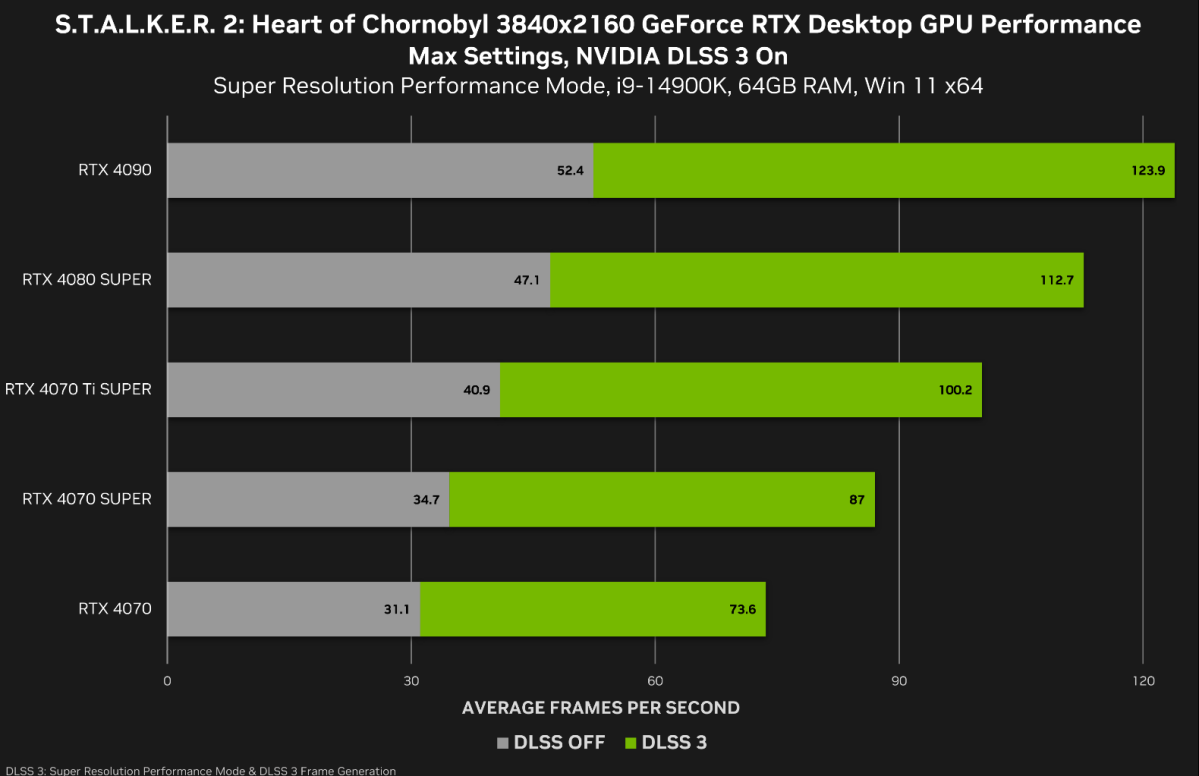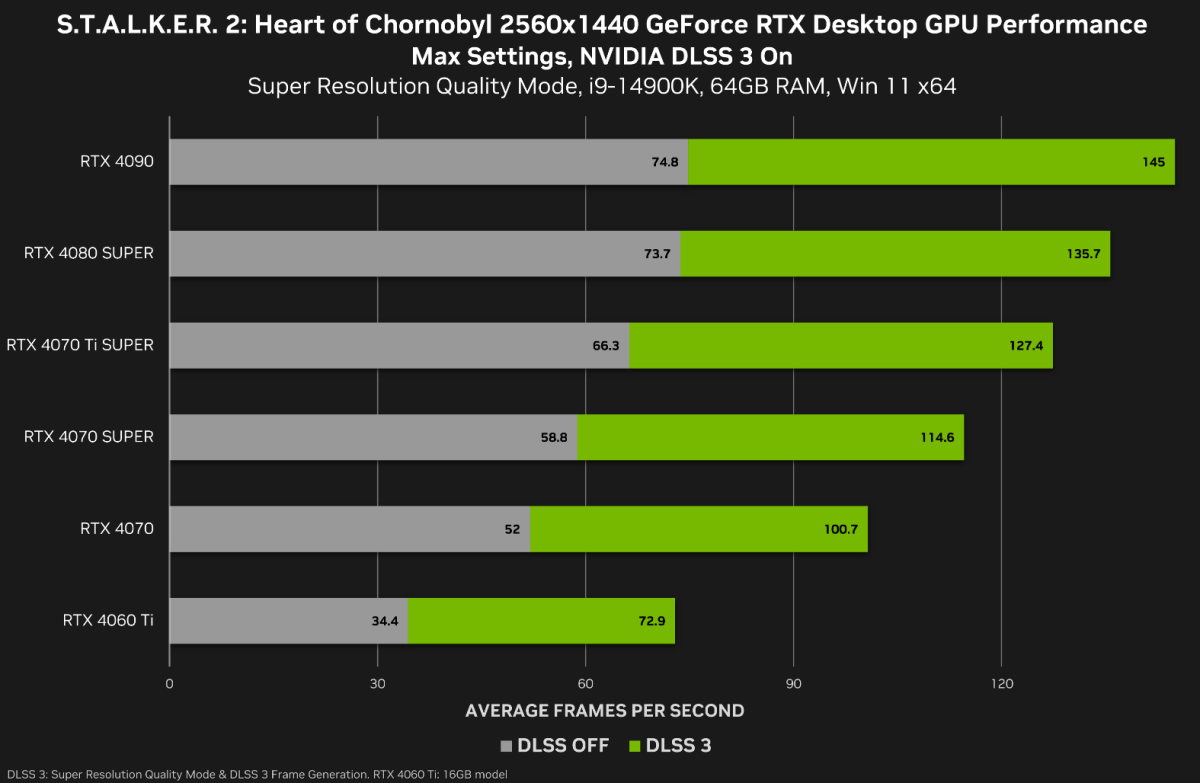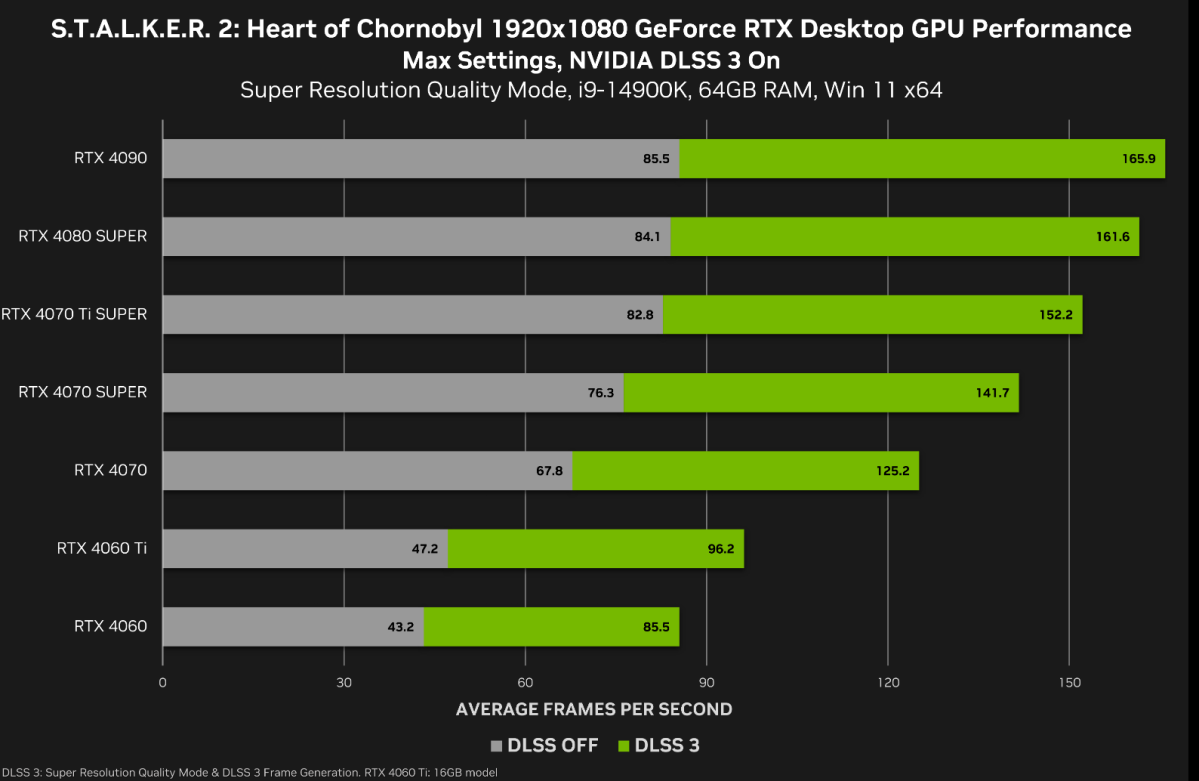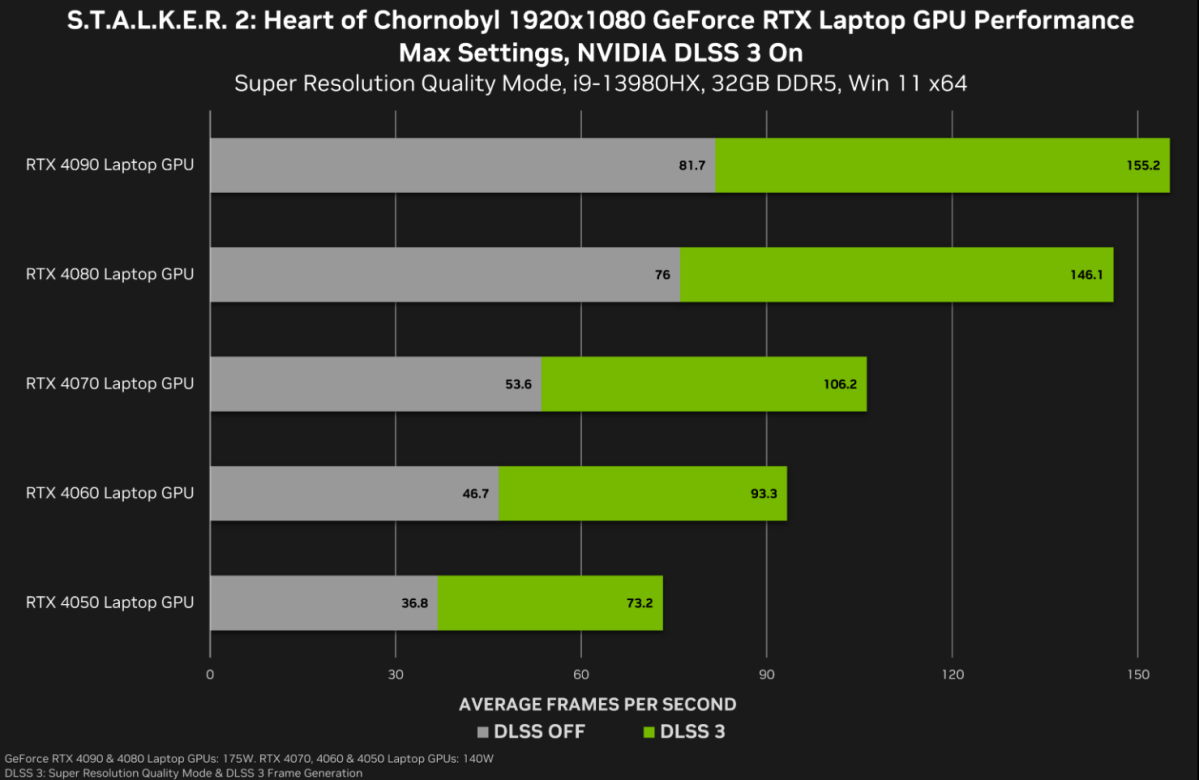Gamers worried that they may not be able to get decent performance in GSC Game World’s upcoming title Stalker 2: Heart of Chornobyl have been thrown a bone by Nvidia in a blog post from the company showing impressive benchmark results that should put minds at ease.
The results show that, yes, it’s indeed possible to get decent results with just a mid-tier RTX 4070 GPU, which can hit an average 70FPS at 1080p. That drops to a still-respectable average 52FPS at 1440p, despite the game utilizing the Unreal Engine 5 build (with the tested configuration), which is one of the most resource-demanding to date.
And that’s with DLSS 3.0 switched off. When it’s on, the real magic happens… and gamers can expect double the performance, which was Nvidia’s main point in the blog post in the first place.
Ironically, Nvidia’s graphs for Stalker 2 hint at DLSS 3.0 being a fix for the game’s possible CPU-dependence. Not literally, of course — just in the way the results fall. Indeed, if that’s actually the case, simply switching on DLSS 3.0 should elevate performance enough that any CPU-dependence that could affect performance is simply a non-event.
Benchmarking setups
In its benchmarking, Nvidia compared DLSS 3.0 performance against non-DLSS 3.0 performance across a range of its RTX 40 Series desktop and laptop GPUs. Benchmarks were carried out on the upcoming game Stalker 2: Heart of Chornobyl, which will support DLSS 3.0 with Frame Generation and Super Resolution from day one (November 20 release).
All of Nvidia’s benchmarks for its GPU desktop lineup were run on PCs powered by Intel Core i9-14900K CPUs with 64GB of RAM and Windows 11. The laptop benchmarks were run on PCs configured with Intel i9-13980HX CPUs with 32GB of RAM and Windows 11.
Desktop performance
From the desktop benchmarking, and at 4K resolution, five Nvidia desktop GPUs ranging from RTX 4070 to RTX 4090 achieved more than a 2x performance gain with DLSS 3.0 switched on, compared to when it was switched off, according to Nvidia’s 4K performance graph.
What’s more, the graph shows that three of the cards — the RTX 4090, RTX 4080 Super, and RTX 4070 Ti Super — kept frame rates high enough to average scores of more than 100FPS.

Nvidia
The results were even better when the resolution was dropped to 1440p. In this case, all five of the original GPUs tested at 4K delivered higher than an average 100FPS.
Nvidia also benchmarked the RTX 4060 Ti at 1440p, which its graph shows averaged a more modest score of 72.9FPS. However, that’s still 2x better than with DLSS 3.0 switched off.

Nvidia
At 1080p, the GPU scores were much the same — around double (some more than double) that of the non-DLSS scores. At this resolution, Nvidia also benchmarked an RTX 4060 card, which its graph shows clocked an average frame rate as high as 85.5FPS, almost twice that of the card in the DLSS off state. At this resolution and with DLSS 3.0 on, the RTX 4090 was most impressive, averaging a whopping 165.9FPS.
Now, to address Stalker 2‘s possible CPU-dependence: Looking at these results, it’s not hard to see why some gamers have raised the issue. While it’s entirely normal for the FPS to plateau as resolutions drop and the CPU takes over a lot of the processing formerly done by the GPU, what we see in these graphs is early plateauing that starts higher up in the chart — at the level of the RTX 4070 at 1440p.
One possible reason put forward is the Unreal Engine 5’s heavy use of Lumen and Nanite systems, which are CPU-dependent ways to globally illuminate the game. Mind you, this is just a hypothesis. But judging by the DLSS 3.0 results, if true, it’s unlikely to be any kind of problem.

Nvidia
Laptop performance
In laptops, the company’s mobile RTX 40 Series GPUs also made full use of DLSS 3.0 technology to win the day. These GPUs again demonstrated around 2x stronger performance when compared to those not utilizing DLSS 3.0 (see below the 1080p performance graph as an example).

Nvidia
While these results look extremely promising for Nvidia’s latest GPU lineup — and for gamers who’ve already pre-ordered Stalker 2 — we’d like to see some independent benchmarks to confirm their veracity. Until then, we remain cautiously impressed.